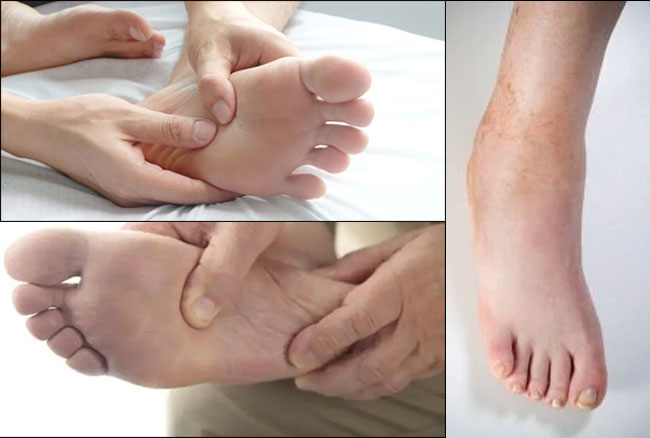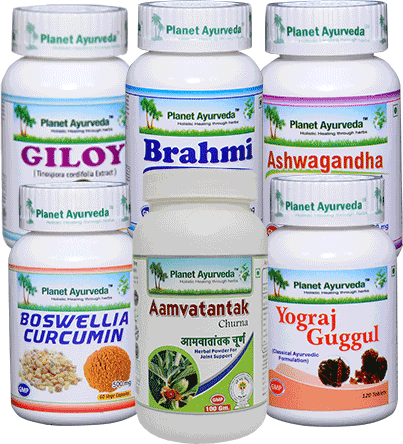How to Treat Plantar fascia Naturally With Ayurveda
Abstract
Plantar fascia is a thin ligament present directly under the skin and button of our foot. It is responsible for connecting the front of the foot to the heel and helps in supporting the arch of foot. This is the region which bears the weight and estimated load on this area is 14 percent. Plantar Fasciitis is one of the most common problems seen in this area and commonly 2 million people all around the world suffer from it. In this article we are going to discuss more in detail along with its Ayurvedic treatment.
What is Plantar Fasciitis?
It is one of the common conditions which lead to painful heels especially at the bottom. It is caused due to the inflammation of plantar fascia running from the foot to the toe. It is especially seen in the people who are runners, hikers, walkers or people who have long standing. It commonly leads to stabbing pain especially in the morning while stepping out of the bed. But the pain gradually decreases as the patient starts to walk continuously and is most common in people with overweight. It is also very seen in people who wear uncomfortable shoes all the time increasing the risk of developing plantar fasciitis.

What are the Signs and Symptoms?
Here are the common clinical features seen in the patient suffering from Plantar Fasciitis including:-
- Pain in the middle of the foot and bottom of the heel.
- Could be seen in single or both feet.
- Sharp or dull pain is felt especially in the morning.
- Burning sensation
- Pain is worse especially in the morning
- Pain mostly radiates outward towards the bottom of the heel.
- It is difficult for them to climb the stairs.
- Sometimes the pain can flare up due to inflammation or irritation.
Complications
If you do not treat the plantar fascia and go on to ignore the pain or all those symptoms then it might lead to more problems. It will change the gait for a person and the pain might even radiate to the knee, back or foot.
What are the causes for Plantar Fasciitis?
As discussed Plantar Fascia is a bowstring shaped ligament which is responsible for supporting the foot and this absorbs the shock while walking. Repeating irritation of the fascia can lead to inflammation although there is no perfect explanation of the condition but there are many risk factors.
This includes
- Age:- Plantar fasciitis is most commonly seen in people between the ages of 40 to 60.
- Obesity:- People who have put on excessive weight as this puts excessive stress on the ligament.
- Performing certain types of exercise:- Performing activities that are responsible for putting too much stress on the heels like ballet dancing, running or any other kind of aerobic exercise.
- Long standing occupation:- People who do jobs like working in a factory or are in teaching profession any many other that forces them to stand for longer time, This increases the risk of damaging the plantar fascia.
How can Plantar Fascia be diagnosed?
- One of the first steps that is done by doctors is noting the physical symptoms of the patient by examining them physically.
- Other tests that can be done are X-Ray and MRI Scan.
Herbal Remedies Provided By Planet Ayurveda For Plantar Fasciitis
Planet Ayurveda is a Private Limited Company that provides herbal medicine not only in India but also other parts of the world. All the medicines are free from chemicals, preservatives and additives making it safe to use as well. Each and every herbal formulations are made under the supervision of an MD Ayurvedic Doctor and also clinically tested.
Here are the list of herbal medicine that will help in treating the disorder naturally:-
- Rumogin 5 capsules
- Yograj Guggul
- Vrihat Vatchintamani Ras
- Boswellia Curcumin

Product Description
1. Rumogin 5 capsules
These capsules are filled with herbs like Haridra (Curcuma longa), Sonth (Zingiber officinale), Maricha (Piper nigrum), Pippali (Piper longum) etc. It helps in increasing the strength of the body as well as reducing stress or anxiety. Due to its analgesic property it is very helpful in reducing all kinds of pain and naturally increasing mobility.
Dosage:- Two capsules twice daily with water after meals.
2. Yograj Guggul
It is made from the combination of herbs like Guggul (Commiphora mukul), Chitrak (Plumbago zeylanica), Amla (Emblica officinalis), Nagarmotha (Cyperus zeylanica) etc. It is effective in reducing pain and swelling around the ligament. Along with that it helps on losing weight as being obese is also one of the reason for Plantar fasiicia. It helps in clearing up the toxins from bones and also reducing the stress on feet.
Dosage:- Two tablets twice daily with water after meals.
3. Vrihat Vatchintamani Ras
This tablet is made from Swarna bhasma, Abhrak bhasma, Mukta bhasma, Rajata bhasma and many more. It is very effective in calming down the nervous system and reducing any kinds of pain in the body. It is useful in balancing the vata dosha and rejuvenating the ligaments, muscles as well as joints. It helps in reducing the stress around the ligament and also the risk of developing Plantar fasciitis.
Dosage:– One Tablet after meals twice daily with water.
4. Boswellia Curcumin
It is made from the extract of two powerful herbs called Shallaki (Boswellia serrata) and Curcumin (Curcuma longa) which are packed with anti-inflammatory properties. It is useful in relieving pain and also the inflammation present in the ligament. It is very effective in increasing mobility and reducing stiffness making it easy to walk.
Dosage:- Two capsules twice daily after meals with water.
Home Remedies For Treating Plantar Fasciitis Naturally
Here are some of the remedies that help in treating the pain around Plantar fasciitis and this includes:-
- Some of these include applying ice on the feet for about 15 to 20 minutes which will naturally reduce the swelling.
- Try replacing your slippers or shoes and also doing some stretching exercises that will help in relieving pain.
- Applying some essential oils like lavender, lemongrass or rose but always make sure to dilute it in coconut oil. Then massage it carefully around the painful region.
- Include foods that are rich in Vitamin C, Zinc, Bromelain and Glucosamine that will improve the health of Plantar Fasciitis.
- Try doing stretching for almost 10 minutes daily as it will help in increasing the movement.
Contact Planet Ayurveda to provide you the costing / ordering and delivery information at – costing.planetayurveda@gmail.com or call at +91-172-5214040 Or Check Website – www.PlanetAyurveda.com
Conclusion
Plantar Fasciitis if not treated can lead to some prolonged damage and then causing it difficult to walk. As discussed above this can cause really excruciating pain and it is important to treat the pain in order to make the movement easy. So, all the mentioned herbal medicine will help in naturally removing the root cause of the disease and treating the disorder.




